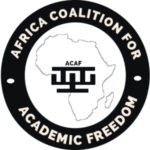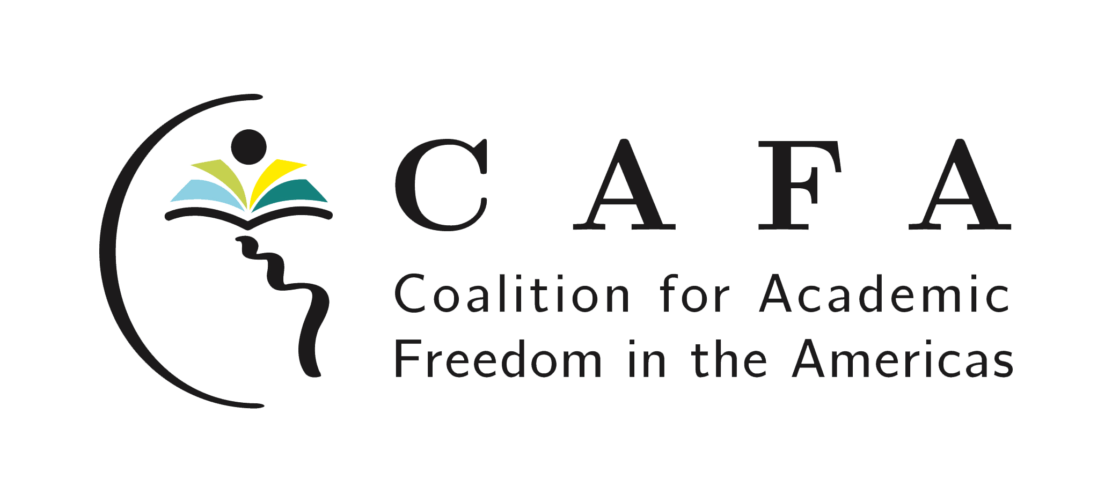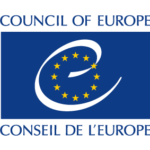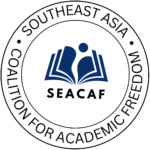Event Highlights: Academic Freedoms Under Threat
Tuesday 17 June 2025
15:00 – 16:30 (CEST)
Online
Academic Freedoms Under Threat
On 17 June 2025, NORRAG hosted the online event “Academic Freedoms Under Threat”, featuring two roundtables with experts addressing contemporary threats to academic freedoms across diverse global contexts. The event, chaired by Moira V. Faul, Executive Director of NORRAG, began with welcome remarks by Noah Sobe, Chief of Section for Higher Education at UNESCO, who underscored academic freedoms as a core value integral to freedoms of expression and a global common good. The event saw strong participation and engagement, with speakers addressing audience questions both live and directly in the Q&A box.
The first roundtable focused on understanding and conceptualising threats to academic freedoms. Iveta Silova (Arizona State University) illustrated historical precedents from Nazi Germany, the Soviet Union, Turkey, and Hungary, highlighting that historically, academia has been politically controlled and used as an instrument of political control. Delal Aydın (Geneva Graduate Institute) elaborated on similarities between contemporary threats in the U.S. and Turkey, stressing the need for collective solidarity and resistance against ideological institutional reshaping. Oakleigh Welply (University of Durham) discussed less visible barriers, such as the tension between academic freedoms and freedom of speech, and the emerging overreach of risk assessments leading to censorship and event cancellations. Marie-Anne Persoons (Council of Europe’s Steering Committee for Education) highlighted the nuanced distinction between academic freedoms as an individual right and institutional autonomy, cautioning against public authorities using professional integrity as an excuse to restrict academic freedoms.
Delal Aydın then urged against treating academic freedoms as merely a Global South issue, advocating for a broader, collective approach. Oakleigh Welply interrogated whether academic freedoms could be universally defined, stressing the need to consider the most vulnerable communities and promote relational responsibility. Iveta Silova called for rethinking academic freedoms not merely as an individual right, but as a relational, collective, and decolonial practice, while Marie-Anne Persoons outlined future actions that the Council of Europe and its member states aim to undertake to strengthen academic freedoms.
The second roundtable addressed regional perspectives and strategies for safeguarding academic freedoms. Kwadwo Appiagyei-Atua (Africa Coalition for Academic Freedom) proposed both universal and uniquely African lenses to analyse academic freedoms issues, emphasising diverse economic and socio-cultural contexts. Bencharat Chua (Southeast Asia Coalition for Academic Freedom) highlighted the inseparability of academic freedoms from broader social justice movements in Southeast Asia, pointing out that scholar activism is deeply intertwined with social justice advocacy. Camilla Croso (Coalition for Academic Freedom in the Americas) discussed the targeted attacks on race, gender, climate, and human rights issues, advocating for collective actions and solidarity to resist these pressures. Iris Kimizoglu (European Students’ Union) underlined the crucial role students play as both beneficiaries and defenders of academic freedoms, emphasising that a diverse student body significantly enhances the overall protection of academic freedoms.
The panelists further explored specific strategies and advocacy approaches in their regions. Kwadwo Appiagyei-Atua highlighted distinctive advocacy strategies in Africa, while Bencharat Chua discussed potential spaces for defending academic freedoms amid authoritarian resurgence and neoliberal pressures. Camilla Croso emphasised the significance of the Inter-American Principles for Academic Freedoms and Institutional Autonomy as a tool for raising awareness and protecting rights in the Americas. Iris Kimizoglu addressed both legal (de jure) and practical (de facto) barriers students face in exercising their rights to academic freedoms.
The event concluded with Moira V. Faul launching the Academic Freedoms Fellows in Europe Initiative, underscoring NORRAG’s ongoing commitment to supporting critical research, dialogue, and the defence of academic freedoms in Europe and beyond.
Academic freedoms are facing unprecedented threats worldwide. Scholars, educators, and students are increasingly vulnerable to contemporary challenges to the right to explore, express, and exchange ideas without fear of reprisal. Challenges to the right to teach, learn and research range from ideological polarization and censorship to misinformation, undue influence in funding and surveillance. This erosion of academic freedoms undermines the quality of education, hinders scientific progress, and weakens the foundations of open and democratic societies.
In response to these challenges, NORRAG will support stakeholders to stimulate evidence-informed action to address contemporary threats to academic freedoms through a series of interconnected activities. This initiative recognizes that in an increasingly polarised and rapidly changing world, the ability of education institutions and their personnel to engage in unfettered learning, teaching, and research is paramount. NORRAG is also establishing an Academic Freedoms Fellows Initiative to complement those established in 2024 in Africa, Asia, Latin America and South-East Asia. This Fellows Initiative will, in the same way as in the other regions, support critical research, foster dialogue, and promote the defence of academic freedoms.
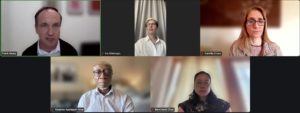
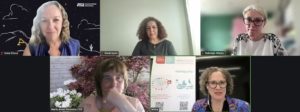
Programme
- Welcome
- Moira Faul, Executive Director, NORRAG
- Noah W. Sobe, Chief of Section for Higher Education at UNESCO
- Roundtable 1, Q&A
- Delal Aydın, Visiting Scholar, Anthropology and Sociology Department (ANSO), Geneva Graduate Institute
- Marie-Anne Persoons, Chair of the Council of Europe’s Steering Committee for Education (CDEDU)
- Iveta Silova, Professor and Associate Dean, Arizona State University
- Oakleigh Welply, Professor and Deputy Executive Dean of People and Culture, University of Durham
- Roundtable 2, Q&A
- Frank Geary, Director of Scholars at Risk Europe
- Kwadwo Appiagyei-Atua, Director of the Africa Coalition for Academic Freedom (ACAF)
- Bencharat Sae Chua, Director of the Southeast Asia Coalition for Academic Freedom (SEACAF)
- Camilla Croso, Director of the Coalition for Academic Freedom in the Americas (CAFA)
- Iris Kimizoglu, President of the European Students’ Union (ESU)
- Close & launch of the Academic Freedoms Fellows in Europe Initiative
- Moira Faul, Executive Director, NORRAG
Speaker Profiles
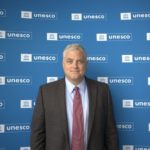 Noah W. Sobe, PhD, is Chief of Section for Higher Education at UNESCO headquarters in Paris. Prior to this appointment he had a two-decade career as a professor at Loyola University Chicago. He was previously at UNESCO (2019-2022) helping to lead a flagship futures of education initiative. Additionally, he is a past president of the Comparative and International Education Society (CIES) and former co-editor of the journal European Education.
Noah W. Sobe, PhD, is Chief of Section for Higher Education at UNESCO headquarters in Paris. Prior to this appointment he had a two-decade career as a professor at Loyola University Chicago. He was previously at UNESCO (2019-2022) helping to lead a flagship futures of education initiative. Additionally, he is a past president of the Comparative and International Education Society (CIES) and former co-editor of the journal European Education.
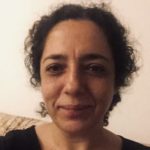 Delal Aydın is currently a visiting scholar in the Anthropology and Sociology Department at the Geneva Graduate Institute. Her research combines historical sociology and political anthropology, focusing on community-building in Kurdish political mobilisation and the role of intimacy in shaping political subjectivities in response to state violence. She holds a PhD in Sociology from the State University of New York at Binghamton, where she examined the political significance of friendship in Kurdish youth mobilisation. Her current work explores affective ties in Kurdish transnational activism and diaspora politics.
Delal Aydın is currently a visiting scholar in the Anthropology and Sociology Department at the Geneva Graduate Institute. Her research combines historical sociology and political anthropology, focusing on community-building in Kurdish political mobilisation and the role of intimacy in shaping political subjectivities in response to state violence. She holds a PhD in Sociology from the State University of New York at Binghamton, where she examined the political significance of friendship in Kurdish youth mobilisation. Her current work explores affective ties in Kurdish transnational activism and diaspora politics.
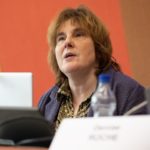 Marie-Anne Persoons (Belgium) has a wealth of experience in educational leadership and policymaking. She chairs the Council of Europe’s Steering Committee for Education, which provides strategic direction and ensures the council’s initiatives at European level align with educational priorities in member states. This includes the project “Academic Freedom in Action”, which focuses on protecting and promoting the values of academic freedoms and ensuring that higher education remains a bastion of democracy and critical thinking.
Marie-Anne Persoons (Belgium) has a wealth of experience in educational leadership and policymaking. She chairs the Council of Europe’s Steering Committee for Education, which provides strategic direction and ensures the council’s initiatives at European level align with educational priorities in member states. This includes the project “Academic Freedom in Action”, which focuses on protecting and promoting the values of academic freedoms and ensuring that higher education remains a bastion of democracy and critical thinking.
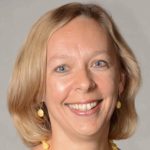 Iveta Silova is Professor of Comparative and International Education and Associate Dean of Global Engagement at Arizona State University’s Mary Lou Fulton College of Teaching and Learning Innovation. She also serves as a Senior Global Futures Scientist at the Julie Ann Wrigley Global Futures Laboratory. Her research explores how education systems respond to political transition, authoritarianism, and ecological crisis—examining the intersections of academic freedoms, memory, and institutional reform in a rapidly changing world. She is currently leading cross-disciplinary work on reimagining the role of education in a time of democratic backsliding and ecological collapse. Silova is the former president of the Comparative and International Education Society (CIES) and an elected member of the World Academy of Art and Science (WAAS).
Iveta Silova is Professor of Comparative and International Education and Associate Dean of Global Engagement at Arizona State University’s Mary Lou Fulton College of Teaching and Learning Innovation. She also serves as a Senior Global Futures Scientist at the Julie Ann Wrigley Global Futures Laboratory. Her research explores how education systems respond to political transition, authoritarianism, and ecological crisis—examining the intersections of academic freedoms, memory, and institutional reform in a rapidly changing world. She is currently leading cross-disciplinary work on reimagining the role of education in a time of democratic backsliding and ecological collapse. Silova is the former president of the Comparative and International Education Society (CIES) and an elected member of the World Academy of Art and Science (WAAS).
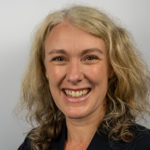 Oakleigh Welply is the Deputy Executive Dean of People and Culture at Durham University (UK). She teaches on the MA courses “Intercultural and International Education,” “Intercultural Communication,” and “International Development and Education”. She is also an international education scholar whose research focuses on immigration and global citizenship education.
Oakleigh Welply is the Deputy Executive Dean of People and Culture at Durham University (UK). She teaches on the MA courses “Intercultural and International Education,” “Intercultural Communication,” and “International Development and Education”. She is also an international education scholar whose research focuses on immigration and global citizenship education.
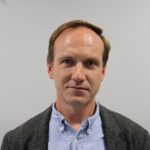 Frank Geary is Director of Scholars at Risk Europe, the European office of the global Scholars at Risk network hosted at Maynooth University in Ireland. Scholars at Risk (SAR) Europe supports and coordinates the activities of SAR national sections and partner networks across Europe to strengthen our collective voice at the European level and contribute to informed policymaking for the greater protection of scholars and increased respect for academic freedoms worldwide. Frank has built a career dedicated to civil society, human rights, education & culture. He was previously Director of IDEA, Ireland’s national network for global citizenship education. Frank has advocated for education and civil society to the United Nations, European Union, and national governments.
Frank Geary is Director of Scholars at Risk Europe, the European office of the global Scholars at Risk network hosted at Maynooth University in Ireland. Scholars at Risk (SAR) Europe supports and coordinates the activities of SAR national sections and partner networks across Europe to strengthen our collective voice at the European level and contribute to informed policymaking for the greater protection of scholars and increased respect for academic freedoms worldwide. Frank has built a career dedicated to civil society, human rights, education & culture. He was previously Director of IDEA, Ireland’s national network for global citizenship education. Frank has advocated for education and civil society to the United Nations, European Union, and national governments.
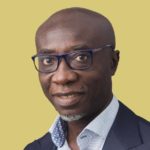 Kwadwo Appiagyei-Atua is the Regional Director of the Africa Coalition for Academic Freedom (ACAF). He is also a Professor of International Law at the School of Law, University of Ghana (UG), Legon, Accra, where he teaches Public International Law and International Human Rights Law. His research interests include post-colonial analyses of the historiography of international law, human rights, and academic freedoms.
Kwadwo Appiagyei-Atua is the Regional Director of the Africa Coalition for Academic Freedom (ACAF). He is also a Professor of International Law at the School of Law, University of Ghana (UG), Legon, Accra, where he teaches Public International Law and International Human Rights Law. His research interests include post-colonial analyses of the historiography of international law, human rights, and academic freedoms.
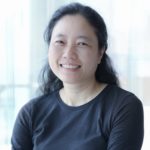 Bencharat Sae Chua is the director of the Southeast Asia Coalition for Academic Freedom (SEACAF) and a Lecturer at the Institute of Human Rights and Peace Studies (IHRP) at Mahidol University, Thailand. Her research interests include social movements, contention over the meanings of democracy and human rights, and the state of human rights in authoritarian regimes.
Bencharat Sae Chua is the director of the Southeast Asia Coalition for Academic Freedom (SEACAF) and a Lecturer at the Institute of Human Rights and Peace Studies (IHRP) at Mahidol University, Thailand. Her research interests include social movements, contention over the meanings of democracy and human rights, and the state of human rights in authoritarian regimes.
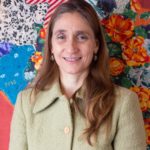 Camilla Croso is the Director of the Coalition for Academic Freedom in the Americas (CAFA). She is a Brazilian human rights, education and democracy advocate and researcher, with a consolidated trajectory in the defence of human rights defenders, academic freedoms, and the strengthening of public education systems and democratic processes across Latin America and globally. She has served as Director of the Education Program of the Open Society Foundations, General Coordinator of the Latin American Campaign for the Right to Education and President of the Global Campaign for Education.
Camilla Croso is the Director of the Coalition for Academic Freedom in the Americas (CAFA). She is a Brazilian human rights, education and democracy advocate and researcher, with a consolidated trajectory in the defence of human rights defenders, academic freedoms, and the strengthening of public education systems and democratic processes across Latin America and globally. She has served as Director of the Education Program of the Open Society Foundations, General Coordinator of the Latin American Campaign for the Right to Education and President of the Global Campaign for Education.
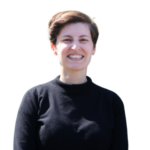 Iris Kimizoglu is the President of the European Students’ Union (ESU). Prior to joining the ESU, she held student representative positions at the local, state, national, and international levels in Germany. Iris has a strong focus on public responsibility, academic freedoms, governance and financing of higher education, as well as student social policy. Iris actively advocates for more inclusive higher education systems and the removal of educational barriers, as well as the protection of fundamental rights for students and the academic community.
Iris Kimizoglu is the President of the European Students’ Union (ESU). Prior to joining the ESU, she held student representative positions at the local, state, national, and international levels in Germany. Iris has a strong focus on public responsibility, academic freedoms, governance and financing of higher education, as well as student social policy. Iris actively advocates for more inclusive higher education systems and the removal of educational barriers, as well as the protection of fundamental rights for students and the academic community.


